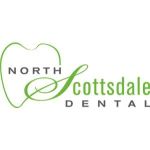How to Care for Your Teeth If You Have Braces: A Comprehensive Guide
If you're undergoing orthodontic treatment, maintaining proper oral hygiene is more important than ever. Braces can trap food particles, plaque, and bacteria, making it challenging to keep your teeth clean. But with the right care and attention, you can ensure your teeth stay healthy and your braces remain in good condition. In this guide, we'll cover practical tips on how to care for your teeth with braces, ensuring your smile stays bright and healthy throughout your treatment.
1. Brush Regularly and Properly
One of the most important steps in caring for your teeth while wearing braces is brushing. It's essential to brush your teeth at least twice a day, but ideally after every meal to remove food particles and plaque that get stuck in your braces. Using a soft-bristled toothbrush and fluoride toothpaste, gently brush each tooth, paying extra attention to the areas around the brackets and wires. A smaller toothbrush, such as an interdental or proxy brush, can also help clean those hard-to-reach spots.
Many orthodontists also recommend using an electric toothbrush for better plaque removal. These brushes tend to be more effective at cleaning the surface of your teeth and gums, helping to maintain optimal oral hygiene throughout your treatment. Consider investing in one for a cleaner, brighter smile.
2. Floss Daily with Special Tools
Flossing with braces can be tricky, but it’s essential for preventing plaque buildup around the brackets and wires. You can use a floss threader or orthodontic floss to navigate around your braces more easily. These tools allow you to slide the floss between your teeth and under the wires, where traditional flossing may not reach.
If you find traditional flossing too difficult, there are other alternatives like interdental brushes or water flossers. Water flossers use a stream of pulsating water to remove food particles and bacteria from between your teeth and braces, making it a convenient option for people with braces.
3. Rinse with Mouthwash
Using an antimicrobial mouthwash can be a great addition to your daily oral hygiene routine. Mouthwash helps reduce plaque buildup, freshens your breath, and cleans areas that your toothbrush and floss might have missed. Look for mouthwashes that are alcohol-free and specifically designed for use with braces. These will be gentler on your mouth and gums while still providing the benefits of proper oral hygiene.
Rinsing with mouthwash after brushing and flossing will help keep your mouth clean and prevent the growth of harmful bacteria that could lead to tooth decay and gum disease.
4. Watch Your Diet
What you eat plays a significant role in how well you care for your teeth with braces. Some foods can get stuck in your braces, making it more challenging to clean your teeth effectively. Sticky foods like caramel, gum, and chewy candies should be avoided, as they can get trapped in the braces and damage the wires.
Additionally, foods that are hard or crunchy, like nuts, popcorn, or ice, can break or loosen your braces. Instead, opt for softer foods like fruits, vegetables, and lean proteins. Also, drinking water throughout the day helps wash away food particles and keeps your mouth hydrated.
5. Regular Dental Checkups and Orthodontic Appointments
Maintaining regular dental checkups and orthodontic appointments is crucial during your orthodontic treatment. Even if your teeth appear to be healthy, your orthodontist will check for potential issues that you might not notice, such as plaque buildup or wire problems. Regular checkups also ensure that your braces are adjusted properly and that you're progressing as expected toward your desired results.
If you're unsure about any aspect of your oral care routine, don’t hesitate to ask your orthodontist for advice. They are the experts when it comes to caring for your teeth with braces and can provide personalized recommendations to suit your needs.
6. Addressing Common Issues: Pain, Irritation, and Emergencies
When you first get your braces, you may experience some discomfort or irritation, particularly when the wires and brackets rub against the inside of your lips and cheeks. To alleviate this, orthodontic wax can be applied directly to the brackets, providing a smooth surface and reducing irritation.
Occasionally, braces can break or become loose, especially if you accidentally chew on hard foods. If this happens, contact your orthodontist immediately for repairs. In the meantime, avoid touching the broken part of your braces to prevent further damage.
If you're in pain due to braces or have concerns about your oral health, don't delay seeing your orthodontist. Timely interventions can prevent more serious problems from developing.
Taking care of your teeth while wearing braces requires diligence and the right tools, but the payoff is worth it. By following these steps, you can ensure your teeth remain healthy and beautiful throughout your orthodontic treatment, setting you on the path to a perfect smile. Remember, when in doubt, consult your orthodontist or a dental professional for tailored advice.







 Dr. Susan R. Richardson Overstreet, DDS4.0 (1 review)
Dr. Susan R. Richardson Overstreet, DDS4.0 (1 review) Community Health Care Hilltop Family Dental Clinic3.0 (188 review)
Community Health Care Hilltop Family Dental Clinic3.0 (188 review) Open Door Family Medical Center- Sleepy Hollow4.0 (215 review)
Open Door Family Medical Center- Sleepy Hollow4.0 (215 review) Lasting Smiles Dental Care4.0 (364 review)
Lasting Smiles Dental Care4.0 (364 review) North Scottsdale Dental4.0 (211 review)
North Scottsdale Dental4.0 (211 review) Dr. Eddie C. Chen, DMD & Associates5.0 (12 review)
Dr. Eddie C. Chen, DMD & Associates5.0 (12 review) The Importance of Oral Health Education During Pregnancy for a Healthy Pregnancy
The Importance of Oral Health Education During Pregnancy for a Healthy Pregnancy Best Tips for Brushing Your Teeth Properly for Healthy Gums: Essential Techniques for Oral Health
Best Tips for Brushing Your Teeth Properly for Healthy Gums: Essential Techniques for Oral Health Why Skipping Dental Checkups Can Lead to Bigger Oral Health Problems
Why Skipping Dental Checkups Can Lead to Bigger Oral Health Problems Advantages of Porcelain Dental Restorations
Advantages of Porcelain Dental Restorations How Can Diabetes Cause Tooth and Gum Problems? Preventing and Managing Oral Health Issues
How Can Diabetes Cause Tooth and Gum Problems? Preventing and Managing Oral Health Issues Healthy Habits for Promoting Good Oral Health and Hygiene: Tips for a Healthy Smile
Healthy Habits for Promoting Good Oral Health and Hygiene: Tips for a Healthy Smile